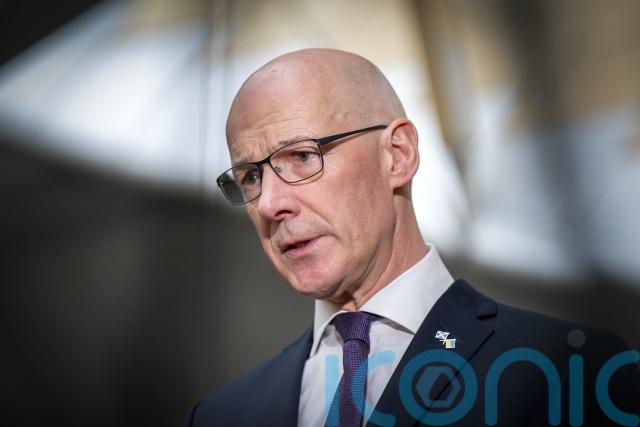
The poorest Scots who owe money because they missed council tax and school meal payments should have efforts to make them pay it back paused, John Swinney has been told.
Nearly 50 charities have written to the Deputy First Minister ahead of the final vote on the Scottish budget for 2023/24 to urge him to pause debt recovery for money owed by the poorest to public bodies for the next six months, as they sounded the alarm about climbing debt among the least well off.
Organisations which backed the call, including: Aberlour children’s charity; the Robertson Trust; and Christians Against Poverty (Cap; told Mr Swinney on Tuesday they had seen increasing demand to help those burdened with debt owed to the state, and that it meant many were trapped in poverty.
SallyAnn Kelly, chief executive of Aberlour, warned that “tens of thousands of Scotland’s poorest families are seeing their monthly incomes reduced to cover debts to public bodies”.

“Low income families are falling deeper into debt as they try to make ends meet. Many are relying on charities and foodbanks just to cover the basic things they need for their children,” she said.
“That’s why we are calling for a pause to public debt recovery for families on the lowest incomes to give them breathing space during the cost-of-living crisis.”
Mr Swinney was told the money owed typically included council tax arrears, Universal Credit advance payments, water charges, local authority service charges, and even school meal debt.
“With unmanageable financial pressures for households on the lowest incomes, many simply cannot absorb more costs as they fall deeper into debt trying to make ends meet,” the letter to the MSP said.
“Paying back debt means households cannot afford to pay the bills and families are unable to buy the most basic essentials for their children.”
The charities also called on Mr Swinney to write off all existing school meal debt, and provide funding and flexibility for councils to write off public debts in some cases.
Emma Jackson, Cap Scotland’s national director, said households on the lowest income were being “disproportionately affected by the cost-of-living crisis and many are being pulled under”.
The charities welcomed the introduction of the Scottish Child Payment, which they said made a “huge difference to families”, but warned those weighed down by debt to public bodies have had the payment swallowed up.
“In effect, what we are seeing is Scotland’s poorest families receiving help with one hand that is being taken away by the other,” the letter said.
In response, a Scottish Government spokesperson said there remain concerns over the impact of the cost-of-living crisis, “with Brexit only deepening the economic damage”.
The spokesperson pointed to the £3 billion in funding provided in this financial year “for a range of measures which will help mitigate the impacts of the cost-of-living crisis on people and households”, which includes £1 billion for support only available in Scotland.
“We have also doubled our fuel insecurity fund to £20 million and support free debt and welfare advice services through £12.5 million to ensure people are able to access the advice, information and support they need to maximise their incomes and to get help with debt,” they added.
“We have already taken significant action in the past year to help provide greater financial resilience for those dealing with problem debt.
“This has included laying regulations to increase the amount of money a person subject to an earnings arrestment is allowed to keep before any payment can be taken.”
Subscribe or register today to discover more from DonegalLive.ie
Buy the e-paper of the Donegal Democrat, Donegal People's Press, Donegal Post and Inish Times here for instant access to Donegal's premier news titles.
Keep up with the latest news from Donegal with our daily newsletter featuring the most important stories of the day delivered to your inbox every evening at 5pm.